The Victorian period refers to the reign of Queen Victoria, 1837–1901. Some scholars suggest the Victorian period can include the period from 1832 (passing of Reform Act, which increased the size of the electorate). In some cases, I have included people who were active just before the Victorian period because they had an influence on that period.
An overlapping period to the Victorian era is the industrial revolution.
Famous people of the Victorian Period
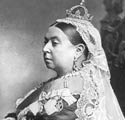 Queen Victoria (1819–1901) Queen of the United Kingdom (1837–1901). Oversaw extension of British Empire and named herself Empress of India (1876–1901). Victorian Era named after her.
Queen Victoria (1819–1901) Queen of the United Kingdom (1837–1901). Oversaw extension of British Empire and named herself Empress of India (1876–1901). Victorian Era named after her.

 Benjamin Disraeli (1804–1881) British Prime Minister and close friend of Queen Victoria. Associated with ‘One Nation’ Conservatism and the expansion of the British Empire.
Benjamin Disraeli (1804–1881) British Prime Minister and close friend of Queen Victoria. Associated with ‘One Nation’ Conservatism and the expansion of the British Empire.
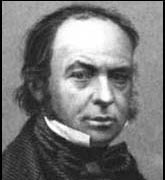 Isambard Kingdom Brunel (1806–1859) English engineer. Brunel was an influential civil engineer of the Victorian period. He built the Great Western Railway from Bristol to London and also developed powerful steamships.
Isambard Kingdom Brunel (1806–1859) English engineer. Brunel was an influential civil engineer of the Victorian period. He built the Great Western Railway from Bristol to London and also developed powerful steamships.
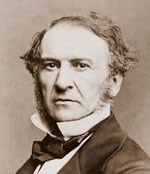 William Gladstone (1809–1898) Liberal Prime Minister. He served as the Prime Minister on four occasions, and as Chancellor of Exchequer on four occasions. Considered to have the epitome of Victorian moral values.
William Gladstone (1809–1898) Liberal Prime Minister. He served as the Prime Minister on four occasions, and as Chancellor of Exchequer on four occasions. Considered to have the epitome of Victorian moral values.

Charles Dickens (1812–1870) Writer and social critic. Dickens more than any other writer captured the Victorian age, especially some of the poverty that was endemic in Victorian inner cities.

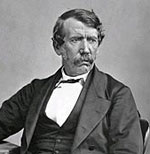 David Livingstone (1813–1873) Explorer. Famously trekked through Africa and became the first European to discover the source of the Nile. A popular Victorian hero who epitomised the age of ‘enlightened Empire’ and the quest for discovery.
David Livingstone (1813–1873) Explorer. Famously trekked through Africa and became the first European to discover the source of the Nile. A popular Victorian hero who epitomised the age of ‘enlightened Empire’ and the quest for discovery.



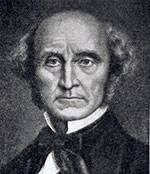 John Stuart Mill (1806–1873) Utilitarian philosopher and supporter of radical/liberal politics and the emancipation of women.
John Stuart Mill (1806–1873) Utilitarian philosopher and supporter of radical/liberal politics and the emancipation of women.
Victorian Humanitarians and Social Activists
These were Victorians who campaigned for improved human rights, the end of slavery, and equality.

William Wilberforce (1759–1833) Campaigner to end slavery. Wilberforce successfully highlighted the terrible conditions of slavery.
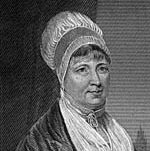
Elizabeth Fry (1780–1845) Quaker prison reformer. She also greatly helped the conditions of prisoners sent for transportation, eventually leading to the abolition of transportation as punishment.
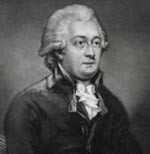 Thomas Clarkson (1760–1846) English abolitionist and leading campaigner against the slave trade.
Thomas Clarkson (1760–1846) English abolitionist and leading campaigner against the slave trade.
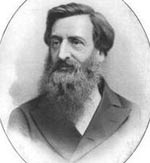 William Booth (1829–1912) Founder of Salvation Army, a Christian organisation dedicated to reducing poverty and ‘saving souls’.
William Booth (1829–1912) Founder of Salvation Army, a Christian organisation dedicated to reducing poverty and ‘saving souls’.
 Robert Owen (1771–1858) Welsh social reformer who attempted to build utopian socialist and co-operative movement.
Robert Owen (1771–1858) Welsh social reformer who attempted to build utopian socialist and co-operative movement.
Women Activists and Suffragists
The Victorian period saw the emergence of the campaign for women’s equality and the vote for women.



Victorian Scientists
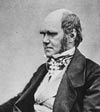 Charles Darwin (1809–1882) English naturalist. Developed theory of evolution. This created one of the greatest changes of thought during the Victorian period. A few years after Darwin published his theory, evolution became commonly accepted.
Charles Darwin (1809–1882) English naturalist. Developed theory of evolution. This created one of the greatest changes of thought during the Victorian period. A few years after Darwin published his theory, evolution became commonly accepted.

Alexander Bell (1847–1922) Scottish scientist credited with inventing the first working telephone.


Famous Victorian Poets
The Victorian period was a golden age of poetry. Here I’ve included Keats, Shelley and the Romantic poets – although their great works really pre-date the Victorian age.








See also: Victorian Poets at Poetseers.org
Famous Americans during the ‘Victorian Period’
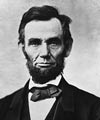 Abraham Lincoln (1809-1865) – As President Lincoln fought to keep the union of United States together during the civil war. In his famous Gettysburg speech, he inspired the nation with his noble words and helped to bring about the abolishment of slavery.
Abraham Lincoln (1809-1865) – As President Lincoln fought to keep the union of United States together during the civil war. In his famous Gettysburg speech, he inspired the nation with his noble words and helped to bring about the abolishment of slavery.
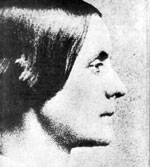 Susan B. Anthony (1820–1906) Political activist for women and human rights. Arrested for voting, her trial became a landmark in the movement for women’s suffrage.
Susan B. Anthony (1820–1906) Political activist for women and human rights. Arrested for voting, her trial became a landmark in the movement for women’s suffrage.
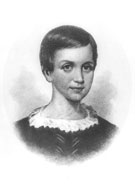 Emily Dickinson (1830–1886) American Poet. Though she wrote more than 1800 poems, fewer than 12 were published in her lifetime.
Emily Dickinson (1830–1886) American Poet. Though she wrote more than 1800 poems, fewer than 12 were published in her lifetime.


Famous Europeans during Victorian Period

Louis Pasteur (1822–1895) Scientist. Best known for his discovery of the principles of vaccination. He intended a process to stop bacteria growth in liquids, known after him as pasteurization.
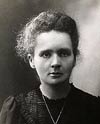 Marie Curie (1867–1934) Scientist. Nobel Prize in chemistry and Physics, best known for her discovery of a new element, Radium.
Marie Curie (1867–1934) Scientist. Nobel Prize in chemistry and Physics, best known for her discovery of a new element, Radium.
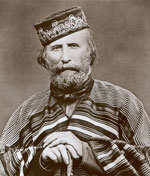 Giuseppe Garibaldi (1805–1872) National hero of Italy. Garibaldi led a volunteer army in the Italian Wars of Independence. He played a key role in uniting Italy. He also fought in Latin America and became known as ‘The Hero of Two Worlds’.
Giuseppe Garibaldi (1805–1872) National hero of Italy. Garibaldi led a volunteer army in the Italian Wars of Independence. He played a key role in uniting Italy. He also fought in Latin America and became known as ‘The Hero of Two Worlds’.
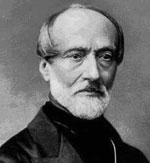 Giuseppe Mazzini (1805–1872) Italian political activist. Campaigned for a united Republic of Italy. Mazzini supported several insurrections against the foreign rule of Italian states. He played a key role in cementing support for a united Italy.
Giuseppe Mazzini (1805–1872) Italian political activist. Campaigned for a united Republic of Italy. Mazzini supported several insurrections against the foreign rule of Italian states. He played a key role in cementing support for a united Italy.
Citation: Pettinger, Tejvan. “Famous Victorians”, Oxford, UK biographyonline.net, 11/02/2013. Updated 14 February 2018.
The Victorians
The Victorians by A.N. Wilson at Amazon
Related pages
 Industrial Revolution (1750s to 1900) The great inventors, entrepreneurs and businessmen of the industrial revolution. Also includes the social activists of the era, such as Charles Dickens.
Industrial Revolution (1750s to 1900) The great inventors, entrepreneurs and businessmen of the industrial revolution. Also includes the social activists of the era, such as Charles Dickens.



External Links
- Victorians 1850-1901 at National archives
- Victorian Britain

